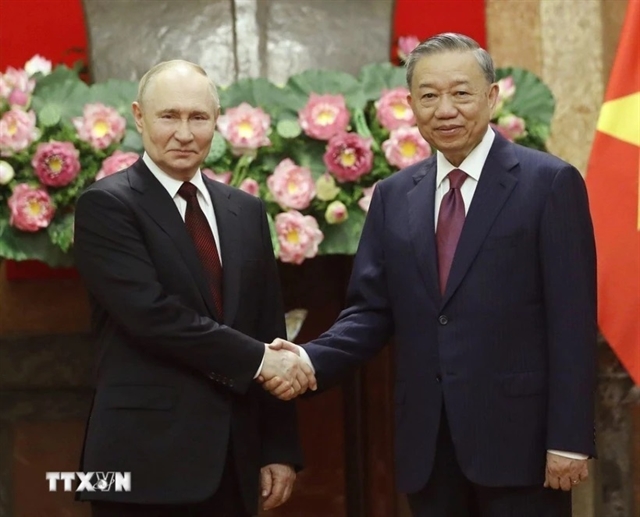.jfif) Opinion
Opinion


|
| Russian President Vladimir Putin and Vietnamese top leader Tô Lâm at their meeting in June 2024 in Hà Nội. — VNA/VNS Photo |
MOSCOW — The diplomatic relation between Việt Nam and Russia has consistently developed in an upward trajectory, growing more intensively and extensively, and now at its highest level of the comprehensive strategic partnership, former Russian Ambassador to Việt Nam Andrey Tatarinov has stated.
In a recent interview granted to a Vietnam News Agency correspondent in Russia, Tatarinov highlighted the significance of the 75th founding anniversary of the diplomatic ties, calling it a milestone in the bilateral relations.
He said since Việt Nam was fully liberated and reunified in 1975, the Southeast Asian country has come a long way, achieving numerous significant accomplishments.
Through many years of working in Việt Nam as a diplomat, Tatarinov mentioned inheritance as a defining characteristic of the relations between Việt Nam and the former Soviet Union, as well as Russia today, stressing that over the past 75 years, Việt Nam and Russia have always been close friends, even before their diplomatic ties were officially established.
This relationship was built on many years of standing side by side in Việt Nam's struggle for independence and freedom, particularly during the 1980s when the Southeast Asian nation had to make tremendous efforts to rebuild its economy after the war.
The two countries also worked together with determination to carry out the “Đổi mới” (renewal) process in Việt Nam and the reforms in the former Soviet Union during the 1990s. They elevated their relationship to a strategic partnership in 2001 during Russian President Vladimir Putin's first visit to Việt Nam, and to a comprehensive strategic partnership in 2012.
Tatarinov also highlighted the first state visit by Putin to Việt Nam immediately after his re-election in 2024, as the clearest evidence of the strong relationship.
Both nations now have all the necessary conditions and great potential to further expand cooperation, he stated, adding that in recent years, the bilateral relationship has become increasingly mutually beneficial and more equal. — VNS




